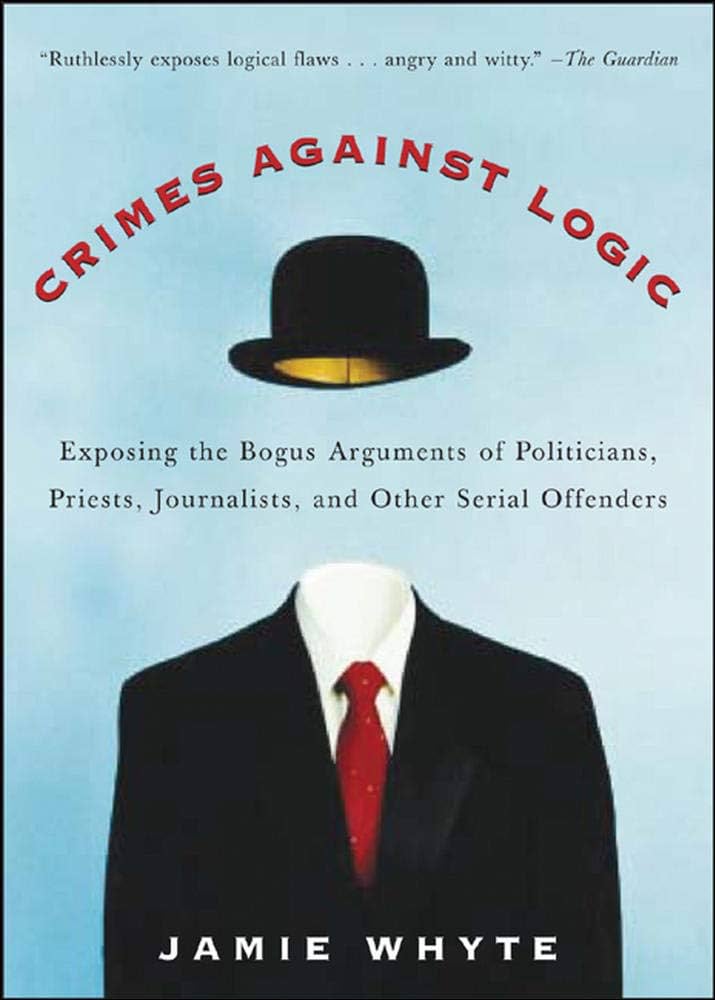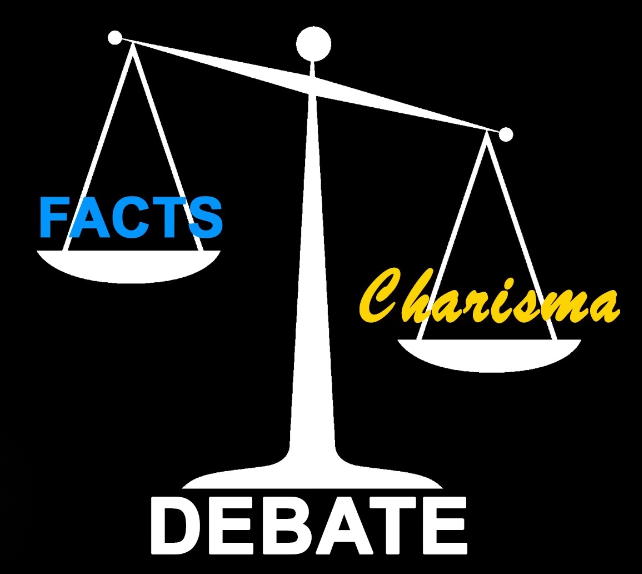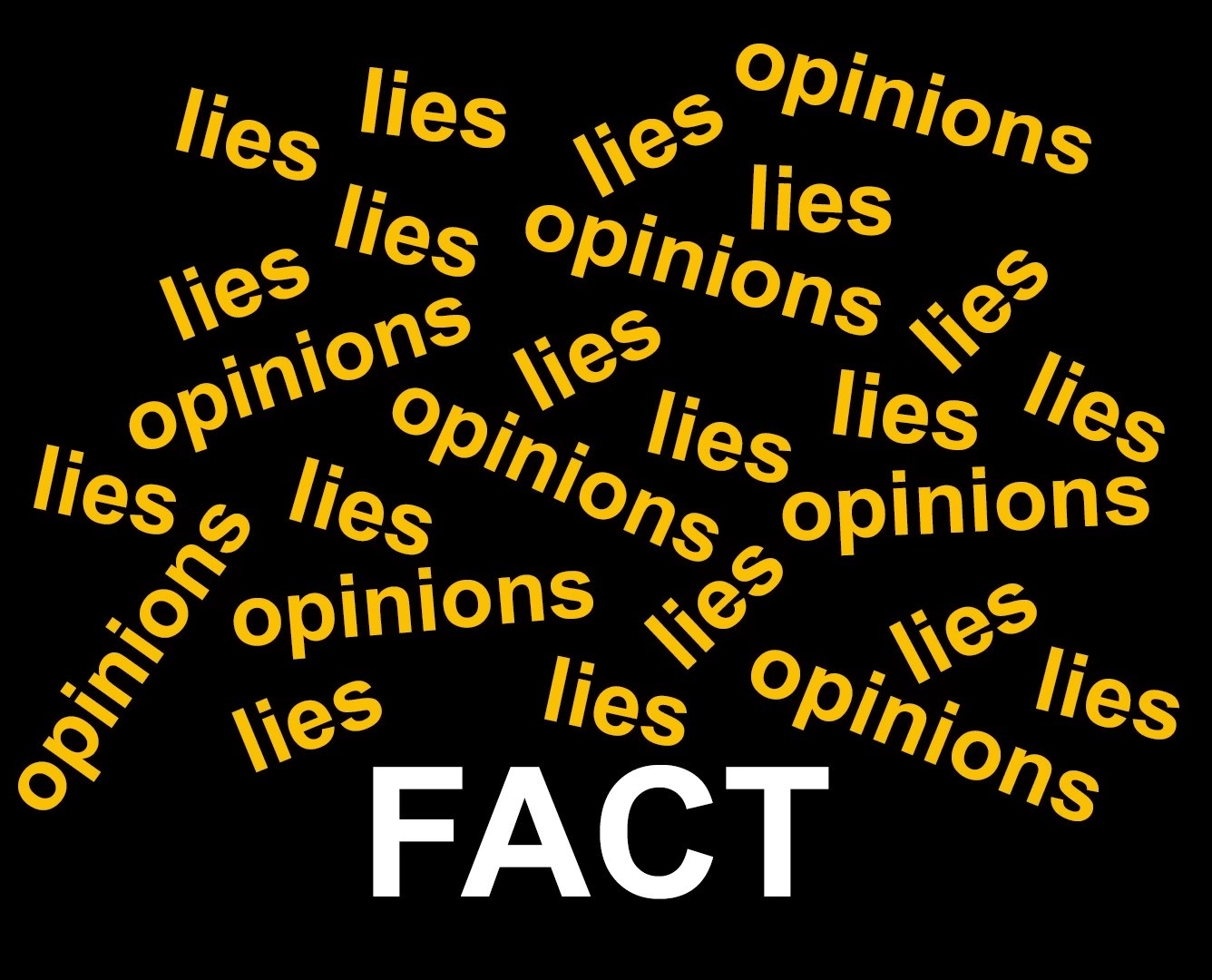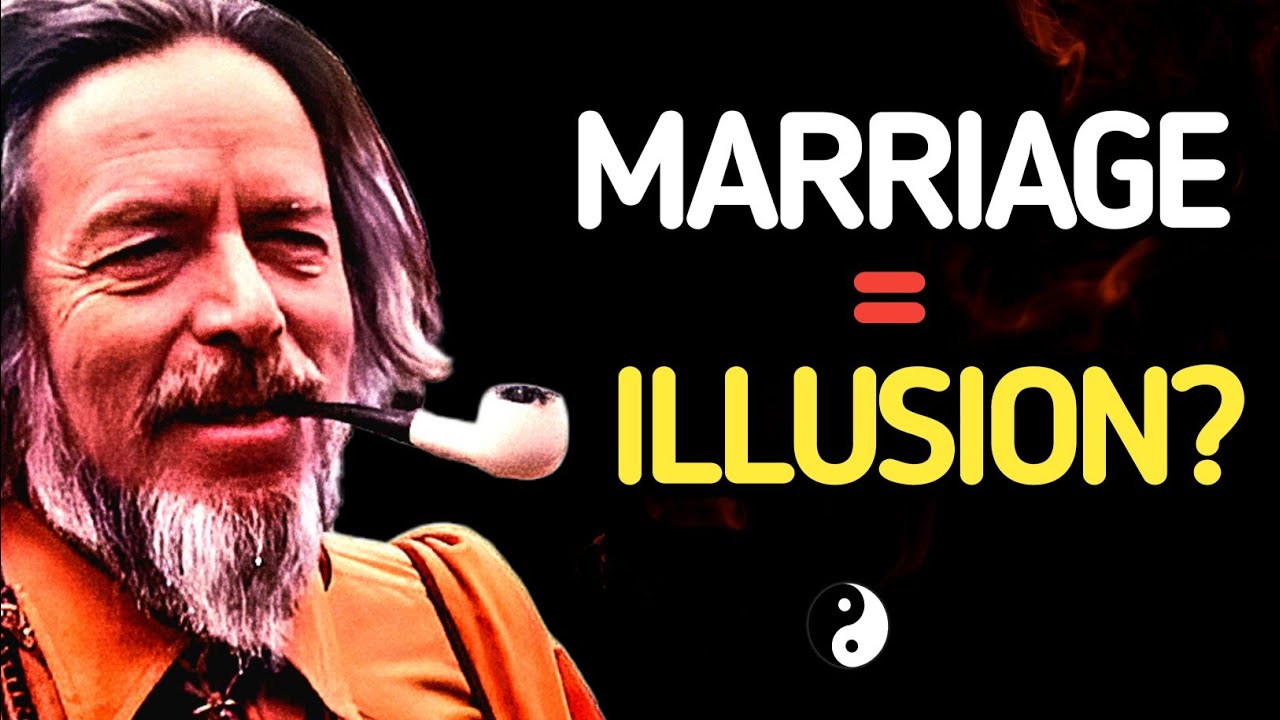
Unraveling the Fabric of Fallacies: An Exploration of “Crimes Against Logic” by Jamie Whyte
As we journey through the labyrinth of logic in Jamie Whyte’s seminal work, “Crimes Against Logic”, it becomes evident how pervasive fallacies are in our daily conversations, political debates, media reports, and even our personal beliefs. This book serves as a compass, guiding us through the maze of misinformation and faulty reasoning that often clouds our judgment and understanding. Let’s embark on this journey together, dissecting each fallacy and unmasking the culprits behind these crimes against logic.

Crimes Against Logic – by Jamie Whyte
The Illusion of Opinion Immunity
We often hear or say, “You are entitled to your opinion,” as a refuge in heated debates. But does this entitlement shield an opinion from scrutiny or render it immune to criticism? According to Whyte, the answer is a resounding “No”. The right to an opinion doesn’t validate it or absolve it from the need for evidence or sound reasoning. It merely acknowledges one’s freedom to hold a view, not its correctness.
Whyte warns us against the fallacy of using this phrase as a defensive armor in debates. To illustrate, consider a scenario where someone argues that global warming is a hoax, despite overwhelming scientific evidence proving otherwise. When challenged, the person retorts with, “Well, I’m entitled to my opinion.” This response contributes nothing to the argument; it merely deflects criticism and evades the need for evidence.

The Motive Fallacy: A Smokescreen for Truth
Another common fallacy explored in the book is the Motive Fallacy. This occurs when we dismiss an argument based on the presumed motives of the person expressing it, rather than its merit or truth. For instance, if a wealthy business owner advocates for lower taxes, one might dismiss their argument by saying, “Of course they would say that, they just want to pay less tax.” While this may be true, it does not necessarily invalidate their argument. The merit of an argument should always be assessed independently of the arguer’s motives.
Whyte provides numerous examples from politics and daily life to illustrate how the Motive Fallacy is used to divert attention from the actual argument and discredit opposing viewpoints. He urges us to focus on the evidence and reasoning presented, rather than getting caught up in speculation about motives.

The Authority Fallacy: Confusing Power with Expertise
Another pitfall Whyte cautions us against is the Authority Fallacy. This occurs when we mistake someone’s literal authority (power or position) for expert authority (knowledge or expertise). For example, believing a politician’s views on climate change simply because of their position, rather than their expertise in environmental science, is an instance of Authority Fallacy.
Whyte distinguishes between these two types of authority, emphasizing that while literal authority can enforce decisions or rules, it does not necessarily confer expertise on a subject. Appeals to authority should be based on the individual’s knowledge and expertise, not their position of power or influence.

Real-Life Examples and Practical Insights
Throughout “Crimes Against Logic”, Whyte uses real-life examples and case studies to bring these fallacies to life. From political debates to everyday conversations, these scenarios help us understand how fallacies are employed and how to spot them in our own thinking and discussions.
For instance, consider a politician who argues for stricter immigration policies, citing high crime rates among immigrants. This argument employs the fallacy of hasty generalization, using isolated incidents or skewed data to make sweeping statements about a whole group. By recognizing this fallacy, we can challenge such misleading arguments and demand more nuanced and evidence-based discussions.

Becoming Informed Thinkers: The Power of Critical Thinking
Beyond exposing fallacies, “Crimes Against Logic” underscores the importance of critical thinking and logical reasoning in evaluating arguments and making informed decisions. It encourages us, as readers and thinkers, to question and challenge the validity of arguments, rather than accepting them at face value.
As Whyte eloquently puts it, “The unexamined argument is not worth believing.” So let’s heed his call to arms. Let’s scrutinize arguments, dissect reasoning, and demand evidence. Let’s be discerning thinkers, not passive consumers of information. And most importantly, let’s commit ourselves to truth, logic, and reason – the very foundations of a just and enlightened society.
Key Takeaways from “Crimes Against Logic”
-
Fallacious reasoning is not merely a harmless intellectual exercise; it can have serious consequences for individuals and society as a whole.
-
Fallacies are often employed to manipulate emotions, exploit prejudices, and avoid addressing contradictory evidence.
-
Critical thinking is essential for navigating the sea of information and opinions that we encounter daily.
-
By recognizing and avoiding fallacious arguments, we can make more informed decisions and contribute to a more rational and just society.
Final Thoughts
“Crimes Against Logic” is a must-read for anyone who seeks to navigate the complexities of modern life with a discerning mind. Whyte’s insightful analysis and engaging writing style make this book both intellectually stimulating and thoroughly enjoyable. By understanding the nature of fallacies and the motivations behind their use, we can empower ourselves to become more critical thinkers, more informed citizens, and more effective communicators.

Unraveling the Fabric of Fallacies: An Exploration of “Crimes Against Logic” by Jamie Whyte
As we journey through the labyrinth of logic in Jamie Whyte’s seminal work, “Crimes Against Logic”, it becomes evident how pervasive fallacies are in our daily conversations, political debates, media reports, and even our personal beliefs. This book serves as a compass, guiding us through the maze of misinformation and faulty reasoning that often clouds our judgment and understanding. Let’s embark on this journey together, dissecting each fallacy and unmasking the culprits behind these crimes against logic.

Crimes Against Logic – by Jamie Whyte
The Illusion of Opinion Immunity
We often hear or say, “You are entitled to your opinion,” as a refuge in heated debates. But does this entitlement shield an opinion from scrutiny or render it immune to criticism? According to Whyte, the answer is a resounding “No”. The right to an opinion doesn’t validate it or absolve it from the need for evidence or sound reasoning. It merely acknowledges one’s freedom to hold a view, not its correctness.
Whyte warns us against the fallacy of using this phrase as a defensive armor in debates. To illustrate, consider a scenario where someone argues that global warming is a hoax, despite overwhelming scientific evidence proving otherwise. When challenged, the person retorts with, “Well, I’m entitled to my opinion.” This response contributes nothing to the argument; it merely deflects criticism and evades the need for evidence.

The Motive Fallacy: A Smokescreen for Truth
Another common fallacy explored in the book is the Motive Fallacy. This occurs when we dismiss an argument based on the presumed motives of the person expressing it, rather than its merit or truth. For instance, if a wealthy business owner advocates for lower taxes, one might dismiss their argument by saying, “Of course they would say that, they just want to pay less tax.” While this may be true, it does not necessarily invalidate their argument. The merit of an argument should always be assessed independently of the arguer’s motives.
Whyte provides numerous examples from politics and daily life to illustrate how the Motive Fallacy is used to divert attention from the actual argument and discredit opposing viewpoints. He urges us to focus on the evidence and reasoning presented, rather than getting caught up in speculation about motives.

The Authority Fallacy: Confusing Power with Expertise
Another pitfall Whyte cautions us against is the Authority Fallacy. This occurs when we mistake someone’s literal authority (power or position) for expert authority (knowledge or expertise). For example, believing a politician’s views on climate change simply because of their position, rather than their expertise in environmental science, is an instance of Authority Fallacy.
Whyte distinguishes between these two types of authority, emphasizing that while literal authority can enforce decisions or rules, it does not necessarily confer expertise on a subject. Appeals to authority should be based on the individual’s knowledge and expertise, not their position of power or influence.

Real-Life Examples and Practical Insights
Throughout “Crimes Against Logic”, Whyte uses real-life examples and case studies to bring these fallacies to life. From political debates to everyday conversations, these scenarios help us understand how fallacies are employed and how to spot them in our own thinking and discussions.
For instance, consider a politician who argues for stricter immigration policies, citing high crime rates among immigrants. This argument employs the fallacy of hasty generalization, using isolated incidents or skewed data to make sweeping statements about a whole group. By recognizing this fallacy, we can challenge such misleading arguments and demand more nuanced and evidence-based discussions.

Becoming Informed Thinkers: The Power of Critical Thinking
Beyond exposing fallacies, “Crimes Against Logic” underscores the importance of critical thinking and logical reasoning in evaluating arguments and making informed decisions. It encourages us, as readers and thinkers, to question and challenge the validity of arguments, rather than accepting them at face value.
As Whyte eloquently puts it, “The unexamined argument is not worth believing.” So let’s heed his call to arms. Let’s scrutinize arguments, dissect reasoning, and demand evidence. Let’s be discerning thinkers, not passive consumers of information. And most importantly, let’s commit ourselves to truth, logic, and reason – the very foundations of a just and enlightened society.
Key Takeaways from “Crimes Against Logic”
-
Fallacious reasoning is not merely a harmless intellectual exercise; it can have serious consequences for individuals and society as a whole.
-
Fallacies are often employed to manipulate emotions, exploit prejudices, and avoid addressing contradictory evidence.
-
Critical thinking is essential for navigating the sea of information and opinions that we encounter daily.
-
By recognizing and avoiding fallacious arguments, we can make more informed decisions and contribute to a more rational and just society.
Final Thoughts
“Crimes Against Logic” is a must-read for anyone who seeks to navigate the complexities of modern life with a discerning mind. Whyte’s insightful analysis and engaging writing style make this book both intellectually stimulating and thoroughly enjoyable. By understanding the nature of fallacies and the motivations behind their use, we can empower ourselves to become more critical thinkers, more informed citizens, and more effective communicators.




